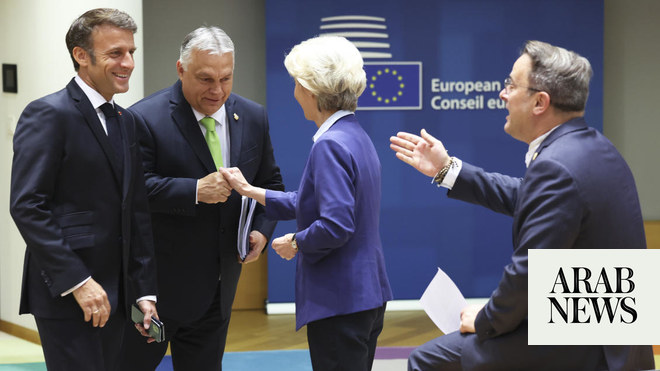
After months of bickering over its human rights record and weakening rule of law, Hungary is threatening to veto the EU long-term budget for 2021-2027 as well as a post-pandemic economic revival plan to help its tattered economy.
Hungarian Prime Minister Viktor Orban has written to the European Commission saying he will use the veto — the first member state in EU history to do so — if access to EU funds is made conditional on governments respecting the rule of law.
As EU members gather to agree on the budget and revival plan, Orban’s warning was the first clear sign of his willingness to disrupt the meeting and bring EU functions to a halt from January — an unprecedented scenario.
To make matters more complicated for the EU, Hungary is not the only member threatening to disrupt the budget. Poland has been at loggerheads with Brussels over the same issue, while seven other countries, mainly from central Europe, also reportedly oppose the EU stance on respect for legal norms and values — a position pushed strongly by Germany.
The need for rule of law has been evident in the EU for years as right-wing governments in some member states, notably Poland and Hungary, have systematically weakened opposition parties, as well as independent judiciary and media, in order to strengthen their grip on power.
Poland has already been taken to the European Court of Justice over legislation that gave the government increased power over judges as well as their selection, replacing previously autonomous mechanisms run by the judiciary.
Earlier this year, the court told Poland to suspend a panel created to discipline judges, saying it was not independent and breached EU law. After Supreme Court rulings that angered the ruling PiS, the party created a disciplinary chamber whose members are mostly elected by the parliament, which is dominated by party members. The move, a thinly veiled attempt to rein in an independent judiciary, did not go down well in other EU capitals, notably Brussels.
In Hungary, Orban has changed electoral rules to weaken the opposition’s ability to gain power and also passed draconian laws to keep the media under his control.
The EU would be better off adopting the approach of a qualified majority for all its decisions and following through on the threat of sanctions against members that act against EU values.
Ranvir Nayar
As a result of these changes, the political landscape looks dramatically different in Germany and its neighbor Poland, for example. When member states begin behaving like dictators in sham democracies, it is a direct challenge to the EU’s founding principles.
Thus, logically, most EU members should have backed Germany’s initiative regarding EU funding. However, many states opposed it and, finally, a compromise was reached with a weaker mechanism for the European Commission to impose sanctions on any member state.
Nevertheless, both Poland and Hungary continue to oppose even the weakened condition of rule of law and want it withdrawn totally, saying it is open to misuse and could be used as a way to blackmail member states and interfere in their domestic affairs.
By holding the EU to ransom over the rule of law, Poland and Hungary have exposed the bloc’s biggest weakness and one that needs to be addressed urgently.
When the “club” was smaller, comprising mainly western European nations with similar history and principles, it was perhaps fine for the union to be run on the basis of unanimity and consensus.
However, even then there were strong differences between members that delayed key decisions, as well as making the EU absent from key global issues such as defense and strategic matters. One key area is the creation of an EU defense force similar to NATO. While French President Emmanuel Macron has advocated the creation of such a force, German Chancellor Angela Merkel has resolutely rejected it.
The EU has faced challenges posed by its consensus-based decision-making mechanism in the past. The creation of a “two-speed” Europe, at the insistence of the UK, was an example of a core group of nations agreeing on and proceeding with greater integration while others, not so keen, were allowed to maintain greater independence.
Faced with a revolt from Warsaw and Budapest, Brussels may be tempted to adopt the same two-speed principle. But while such a mechanism may have worked in the case of Britain, the EU now has 27 members of all sizes, and with dramatically different histories and traditions, and would struggle to manage with differential speeds for other countries.
The EU would be better off adopting the approach of a qualified majority for all its decisions and following through on the threat of sanctions, or even more serious punitive action, against members that act against EU values — adhering to which was a precondition for joining the union. Otherwise Brussels could be left negotiating many more disputes than just Brexit.
Ranvir S. Nayar is managing editor of Media India Group, a global platform based in Europe and India, which encompasses publishing, communication and consultation services.
Disclaimer: Views expressed by writers in this section are their own and do not necessarily reflect Arab News" point-of-view










